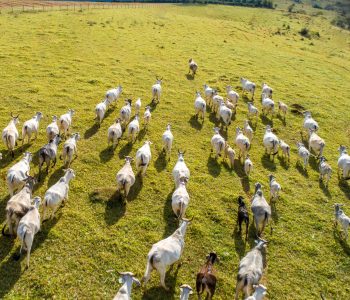Half of the World’s Pastures Degraded by Overuse and Climate, Says UN Report
Population growth and rising food demand have led to the raising of more animals than the land can sustain.
Half of the world’s natural pasturelands have been degraded by overexploitation and the impact of climate change, jeopardizing food supplies and livelihoods, stated the United Nations body responsible for combating desertification on Tuesday.
The United Nations Convention to Combat Desertification (UNCCD) warned that one-sixth of the world’s food supply is at risk due to pasture degradation, which includes savannas, wetlands, deserts, and grazing lands.
Population growth, urbanization, and rising food demand have promoted the raising of more animals than the land can sustain, along with the conversion of natural pastures into intensive croplands, leading to soil fertility decline and worsening droughts, according to the report.
Barron Joseph Orr, Chief Scientist at UNCCD, stated that while the situation is disheartening, there is a growing recognition that land restoration is part of the solution to climate change, with pastures accounting for one-third of the world’s carbon storage capacity.
“Emissions are a big problem, for sure, but where do we want to put the carbon—where it naturally belongs? In our soils and vegetation, and if we continue to undermine this, we are undermining our solution,” he said.
Pastures make up about 54% of the world’s total land area and support two billion farmers, herders, and livestock keepers, according to the UNCCD report. The previous degradation estimate was 25%, but the UNCCD said it had severely underestimated the damage, and the new figure is based on expert research in more than 40 countries.
The report identified Central Asia, China, and Mongolia as the most affected regions, with agricultural industrialization displacing traditional pastoral communities and putting greater pressure on resources. Africa, the Middle East, and South America have also experienced widespread degradation, according to the report.
Orr stated that governments need to adopt a more integrated approach to land protection rather than focusing on individual restoration projects. He also mentioned that traditional grazing practices can aid in pasture recovery.
“Generally, the way things were done in the past, traditionally, can greatly contribute to the solutions we are trying to achieve today,” he said.
Source: Forbes Agro
